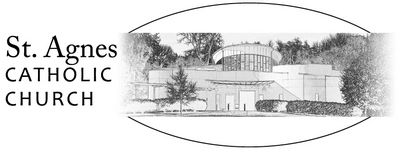Catholic Corner
January 17, 2021
Now that the Christmas Season is past, we return to Ordinary Time but Ordinary Time is anything but ordinary! Our focus tends to be on the “big four,” Advent, Christmas, Lent and Easter. Yet, much of our time in Church is spent in Ordinary time. It is the time of green vestments, a time that fits between Christmas and Ash Wednesday, and between Pentecost and Advent. The Liturgical Year is the cycle of liturgical seasons, Ordinary time, Advent, Christmas, Lent and Easter. We are familiar with the focus of Lent (fasting, almsgiving and prayer), Easter (the resurrection of Christ), Advent (preparing for the second coming of Christ and looking back at his first coming), and Christmas (the celebration of the incarnation of the Son of God). But what is the focus of Ordinary Time? Sunday!! Sunday is the focus of Ordinary Time, making it extraordinary in it’s own right!
Sunday, the first day of the week is also known as the eighth day, the day that never ends. Put an eight on its side and you have an infinity sign. The eighth day is the first day of the new age, of infinity, of a day that never ends, of a time of resurrection and new life. We use phrases such as Sunday as a time of new creation. It is the Lord’s day, the day of the Sun, the day of the light of the Lord. It is the day of the Eucharist, a day of celebration, a day of joy. It is the day wherein we focus on the gifts God gave us, the grace of God in nature and the world. There’s nothing ordinary about any of this.
Sunday is the feast of the resurrection! It focuses on the Paschal Mystery. This is the mystery that is Christ’s life, death and resurrection and our lives therein. But what is this Paschal Mystery? The word “Paschal” refers to Easter and comes from the Greek word “Pascha.” Pascha in turn refers to Passover. Jesus is referred to as the Paschal Lamb, The Gospel of John places Jesus’ death at the time that the lambs for Passover were sacrificed at the Temple. And why is it a mystery? Because mystery here isn’t like a mystery novel, you don’t get the answer at the end of the book! Mystery here comes from the Greek term Mysterion or sacred secret and refers to a sacred reality, “one which is encountered, embraced, but never “defined.” On Sunday we celebrate this ongoing mystery in our presence. We have been baptized into the life, death and resurrection of Christ, we celebrate this mystery and our participation in it every time we celebrate the Eucharist and especially on Sunday.
In the early Church because Sunday was a day of celebration it was a day where no fasting should occur, no kneeling was allowed for it was a day that expressed confidence and joy in the resurrection. This joyful standing was an expression of faith in the resurrected Christ.
With the Paschal Mystery as the focus of the Sunday celebration and the Sunday celebration as the focus of Ordinary time, we being to see why Ordinary time is not ordinary.
